
The 1972 United States presidential election was the 47th quadrennial presidential election. It was held on Tuesday, November 7, 1972. Incumbent Republican President Richard Nixon defeated Democratic Senator George McGovern of South Dakota.
Donald Henry Segretti is an attorney best known for working as a political operative with then-U.S. President Richard Nixon's Committee to Re-elect the President during the early 1970s. Segretti served four and a half months in prison after investigations related to the Watergate scandal revealed his leading role in extensive political sabotage efforts ("ratfucking") against the Democrats.
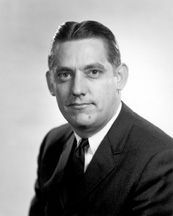
Fred Roy Harris is a former Democratic United States Senator from the state of Oklahoma.
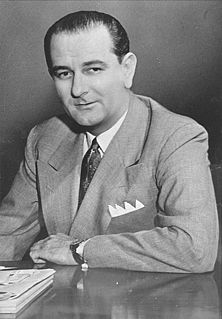
The 1958 United States Senate elections were elections for the United States Senate which occurred in the middle of President Dwight D. Eisenhower's second term. As is common in midterm elections, the party in the White House lost seats, but losses this year were more than usual, perhaps due to the high unemployment of the Recession of 1958. The Eisenhower Administration's position on right-to-work issues galvanized labor unions which supported Democrats. The launch of Sputnik may also have been a factor.
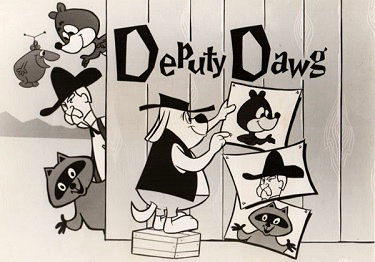
Deputy Dawg is a Terrytoons cartoon character featured on the animated television series of the same name.
The Canuck letter was a forged letter to the editor of the Manchester Union Leader, published February 24, 1972, two weeks before the New Hampshire primary of the 1972 United States presidential election. It implied that Senator Edmund Muskie, a candidate for the Democratic Party's presidential nomination, held prejudice against Americans of French-Canadian descent. The letter's immediate effect was to compel the candidate to give a speech in front of the newspaper's offices, subsequently known as "the crying speech". The letter's indirect effect was to contribute to the implosion of Muskie's candidacy.

A campaign bus is a bus used as both a vehicle and a center of operations during a political campaign, whether for a specific candidate, a political party, or a political cause. A campaign bus can also transport members of the press covering a candidate's campaign. In the UK, they are shared by reporters, political commentators and a politician, usually a party leader, to give them all access to each other as they traverse the country making speeches and other engagements during a general election campaign. In theory, the mutual advantage is that journalists get close access to politicians, and politicians can convey their message more directly to those reporting them. The modern use of campaign buses is often calculated to bring to mind whistle stop train tours that political candidates had historically used to reach large numbers of voters while campaigning by train.
Clinton Amos Clauson was a Democratic Party politician and the 66th Governor of Maine. Clauson died while in office, having served as governor for just under a year.

The 1972 Democratic presidential primaries were the selection process by which voters of the Democratic Party chose its nominee for President of the United States in the 1972 U.S. presidential election. Senator George McGovern of South Dakota was selected as the nominee through a series of primary elections, caucuses, and state party conventions, culminating in the 1972 Democratic National Convention held from July 10 to July 13, 1972, in Miami, Florida.
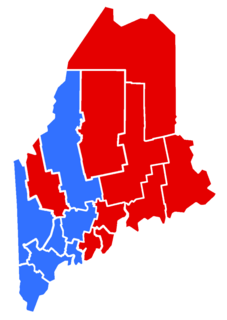
The 1958 Maine gubernatorial election took place on September 8, 1958. Incumbent Democratic Governor Edmund Muskie, was term limited and seeking election to the United States Senate, thus did not run. Democrat Clinton Clauson, then mayor of Waterville, unexpectedly defeated Muskie's chosen Democratic candidate in the primary, and faced off against the popular previous two term Republican Governor, Horace Hildreth in the general election. Hildreth was the heavy favorite to win, however Clauson was able to narrowly defeat him, retaining the Blaine House for the Democrats.
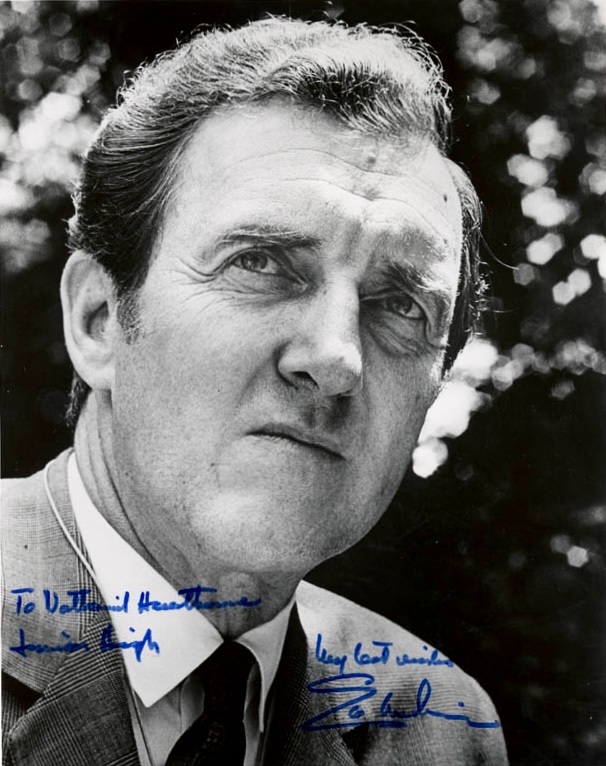
The 1954 Maine gubernatorial election took place on September 13, 1954. Incumbent Republican Governor Burton M. Cross was seeking a second term which would have made him the fifth consecutive Governor to be elected twice. Democratic state representative Edmund Muskie, widely viewed as the underdog due to Maine's solidly Republican history, was able to pull an upset victory and become the first Democrat to be elected to the Blaine House since Louis J. Brann in 1934, and only the fourth Democrat in the 20th century. His election is widely viewed as the first step in making Maine a two-party state.

George McGovern, a Democratic Party politician from South Dakota, was first elected to the United States House of Representatives to represent South Dakota's 1st congressional district in 1956. He was re-elected in 1958, before making an unsuccessful run for the United States Senate in 1960 against Republican incumbent Karl Earl Mundt. After serving in the John F. Kennedy administration as director of the Food for Peace program, McGovern ran again for the Senate and narrowly prevailed over appointed Senator Joseph H. Bottum. In 1968, McGovern unsuccessfully sought the Democratic Party's presidential nomination at the Democratic National Convention and was re-elected to the Senate over former Governor of South Dakota Archie M. Gubbrud. In 1972, McGovern was successful in his campaign for the Democratic presidential nomination, but lost the election in a landslide to incumbent President Richard Nixon. McGovern was re-elected to the Senate in 1974 over Vietnam War veteran Leo K. Thorsness, but lost re-election in 1980 to then-U.S. Representative James Abdnor. McGovern made a final unsuccessful run for president in United States presidential election, 1984.

The 1976 United States Senate election in Maine took place on November 2, 1976. Incumbent Democratic senator Edmund Muskie won re-election to a fourth term.

This article lists those who were potential candidates for the Democratic nomination for Vice President of the United States in the 1968 election. After winning the Democratic presidential nomination at the 1968 Democratic National Convention, incumbent Vice President Hubert Humphrey asked the convention to nominate Maine Senator Edmund Muskie as his running mate. The convention overwhelmingly voted to ratify the choice of Muskie, though Julian Bond picked up a scattering of votes. Muskie was surprised by the selection, as he was from a Northeastern state with few electoral votes. Humphrey almost chose Oklahoma Senator Fred R. Harris, but Humphrey decided that Muskie's age, governmental experience, and quiet temperament made him the better candidate. The Humphrey-Muskie ticket ultimately lost to the Nixon-Agnew ticket in the 1968 election. Muskie's place on the national ticket helped make him an early front-runner for the 1972 Democratic presidential nomination, though Muskie ultimately dropped out of the contest.

The 1970 United States Senate election in Maine was held on November 3, 1970. Incumbent Democrat Edmund Muskie defeated Republican nominee Neil S. Bishop with 61.74% of the vote.

The 1968 United States presidential election in Hawaii took place on November 5, 1968. All 50 states and the District of Columbia, were part of the 1968 United States presidential election. Hawaii voters chose 4 electors to the Electoral College, which selected the president and vice president.
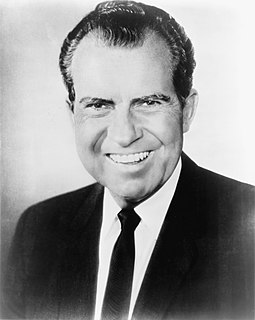
The 1968 United States presidential election in Wyoming took place on November 5, 1968. All 50 states and the District of Columbia were part of the 1968 United States presidential election. Wyoming voters chose three electors to the Electoral College, who voted for president and vice president.

The 1968 United States presidential election in Arizona took place on November 5, 1968. All fifty states and the District of Columbia were part of the 1968 United States presidential election. Arizona voters chose five electors to the Electoral College, who voted for president and vice president.

The 1968 United States presidential election in Connecticut took place on November 5, 1968, as part of the 1968 United States presidential election, which was held throughout all 50 states and D.C. Voters chose eight representatives, or electors to the Electoral College, who voted for president and vice president.
















